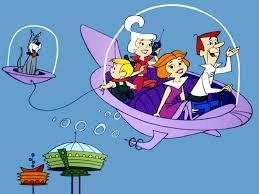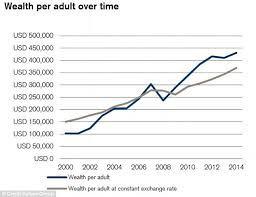 On December 17, 1903, the Wright brothers achieved a 12-second, 120-foot flight. Within about half a century, we were flying to Europe in eight hours. After a further half century, we’re doing it in . . . eight hours. Meantime, the Concorde, that could do it in three, was abandoned.
On December 17, 1903, the Wright brothers achieved a 12-second, 120-foot flight. Within about half a century, we were flying to Europe in eight hours. After a further half century, we’re doing it in . . . eight hours. Meantime, the Concorde, that could do it in three, was abandoned.
So has progress actually juddered to a halt? Michael Hanlon, writing recently in Aeon, says yes. He sees a “Golden Quarter” (GQ) from about 1945 to 1971 as the source of all the innovations defining the modern world, with nothing comparable since.

Why? Hanlon proposes various answers. One is . . . wait for it . . . rising inequality. Progressives are obsessed over this, trying to prove inequality causes all manner of ills. Hanlon attributes the GQ innovation to a world getting richer, but says concentrating wealth in few hands somehow stifles innovation and breeds “planned obsolescence” of products instead.

More persuasive is Hanlon’s saying we’ve become less trusting of science and more risk-averse. An earlier generation was in love with technological and medical improvements, remembering how bad things were before. Today we forget, and even romanticize “the good old days.”

He also cites a 2011 essay, The Great Stagnation, by economist Tyler Cowen, suggesting that the U.S. in particular has reached a technological plateau.

I’m no physicist, but I do think we’ve now reached a point where nothing could “shatter old paradigms completely.”

This perspective prompts a broader response to Hanlon – a la “what more do you want?” We can travel to Europe in eight hours! Moreover, as Hanlon actually acknowledges, that’s become affordable to ordinary people.

But none of this means progress, in all its manifestations, has fizzled out, and Hanlon has to twist things hard to make it seem so. While early on he sneers that progress today “is defined almost entirely by consumer-driven, often banal improvements to information technology,” later he allows that “the modern internet is a wonder, more impressive in many ways than Apollo.” The Internet too postdated the GQ.

And while “what more do you want?” may be a fair perspective on modernity, there are still big things we can yet aim for. We won’t blow ourselves up, or be done in by climate change. For all the fretting over that and rising inequality, I actually foresee steady economic advancement and a global mass affluence that will truly constitute a quantum change in the human condition. Similarly transformative will be further progress on health. Death by old age is a solvable medical problem.
Finally, all this improvement will be propelled by advancing artificial intelligence. That looms as a stupendous game-changer – Ray Kurzweil’s “singularity” when life becomes altogether different.

I discussed this in my famous 2013 Humanist magazine article, The Human Future: Upgrade or Replacement? And if anyone in that future remembers the Hanlon article, it’ll quaintly sound like Kelvin in 1900.
* He aptly notes that the thalidomide episode was awful, but such occasional screw-ups are the inevitable costs of trying out new things, the benefits of which exceed such downsides. That perspective is being lost, an attitudinal change to which Thalidomide contributed.
** But self-driving cars are coming.
